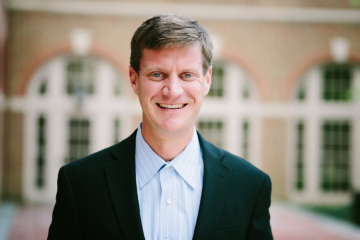
News
August 21, 2025
Finding meaning in the danger zone
David Long explores how near-death experiences transform work through storytelling
## Finding Meaning in the Danger Zone: How Near-Death Experiences Transform Work Through Storytelling
Have you ever wondered what goes through someone's mind when facing a life-threatening situation? And, more importantly, how does that experience reshape their perspective on life, especially their work? David Long, a researcher and storyteller, is diving deep into this very question, exploring the profound impact near-death experiences (NDEs) have on individuals and their professional lives.
Long's work centers around the transformative power of storytelling. He believes that by sharing these intense experiences, we can gain valuable insights into what truly matters, both personally and professionally. His research suggests that individuals who have faced their mortality often undergo a significant shift in priorities, values, and motivations. This shift, in turn, dramatically alters their approach to work.
Instead of chasing promotions or material possessions, many survivors begin to prioritize purpose, connection, and contribution. They seek work that aligns with their newfound values, often leaving behind high-paying but unfulfilling jobs to pursue careers that offer a sense of meaning and impact. Some might dedicate themselves to helping others, becoming nurses, therapists, or social workers. Others might start their own businesses focused on social good or environmental sustainability.
Long emphasizes that these transformations aren't always easy. Survivors often grapple with the psychological and emotional aftermath of their NDEs. However, he argues that the clarity gained from facing death can be a powerful catalyst for positive change. By understanding how these experiences influence work, we can learn valuable lessons about finding fulfillment and purpose in our own lives, regardless of whether we've had a near-death experience ourselves.
Long's research encourages us to reflect on our own values and motivations. Are we truly happy with the work we do? Are we contributing to something larger than ourselves? By listening to the stories of those who have stared death in the face, we can gain a fresh perspective on what matters most and make more intentional choices about how we spend our time and energy in the workplace. Ultimately, Long's work reminds us that work should be more than just a means to an end; it should be a source of meaning and fulfillment.
Have you ever wondered what goes through someone's mind when facing a life-threatening situation? And, more importantly, how does that experience reshape their perspective on life, especially their work? David Long, a researcher and storyteller, is diving deep into this very question, exploring the profound impact near-death experiences (NDEs) have on individuals and their professional lives.
Long's work centers around the transformative power of storytelling. He believes that by sharing these intense experiences, we can gain valuable insights into what truly matters, both personally and professionally. His research suggests that individuals who have faced their mortality often undergo a significant shift in priorities, values, and motivations. This shift, in turn, dramatically alters their approach to work.
Instead of chasing promotions or material possessions, many survivors begin to prioritize purpose, connection, and contribution. They seek work that aligns with their newfound values, often leaving behind high-paying but unfulfilling jobs to pursue careers that offer a sense of meaning and impact. Some might dedicate themselves to helping others, becoming nurses, therapists, or social workers. Others might start their own businesses focused on social good or environmental sustainability.
Long emphasizes that these transformations aren't always easy. Survivors often grapple with the psychological and emotional aftermath of their NDEs. However, he argues that the clarity gained from facing death can be a powerful catalyst for positive change. By understanding how these experiences influence work, we can learn valuable lessons about finding fulfillment and purpose in our own lives, regardless of whether we've had a near-death experience ourselves.
Long's research encourages us to reflect on our own values and motivations. Are we truly happy with the work we do? Are we contributing to something larger than ourselves? By listening to the stories of those who have stared death in the face, we can gain a fresh perspective on what matters most and make more intentional choices about how we spend our time and energy in the workplace. Ultimately, Long's work reminds us that work should be more than just a means to an end; it should be a source of meaning and fulfillment.
Category:
Technology